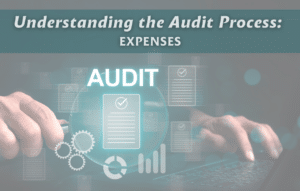With the end of 2022 coming closer and closer every day, you can help reduce your taxable income during the last month of the year with tax planning strategies. This post is the final piece of our series of ideas to consider in order to minimize your tax liability. See the “Related Posts” link at the bottom of this article for more tax planning strategies.
Security Planning
It is important for taxpayers who hold stocks to understand the tax implications of these investments. Generally, if you have owned the stocks for less than a year, any profits realized are taxable at your ordinary income tax rate up to 40.8% (which is a combination of the maximum individual rate of 37% plus 3.8% net investment income tax). However, if you hold onto the appreciated investments for over a year, you will receive a tax benefit because the income will be taxable as capital gains, which have lower rates than those for ordinary income. In 2022, the long-term capital gains rates are 0%, 15%, and 20%, depending on your taxable income bracket, plus the 3.8% net investment income tax (if applicable). You should also consider donating appreciated stock to a charitable organization in lieu of a cash donation to avoid paying tax on the appreciation in the securities.
Another way to realize additional tax benefits on the sale of securities is by utilizing a Qualified Opportunity Fund (QOF) to invest in a Qualified Opportunity Zone (QOZ) property. Several hundred qualified opportunity zones have been designated by the IRS. You do not need to live in the zone. Additional details about QOZs and QOF investments can be found on the IRS website.
If you invest in opportunity zones, you may elect to defer the taxation of capital gain realized from the sale or exchange of property to an unrelated party. To realize this tax benefit, you must reinvest the proceeds in a QOF within 180 days of the sale or exchange. The reinvestment may be made by transferring cash or property to the QOF. You may choose to defer taxation on only a portion of the capital gain, and it is not necessary to reinvest all of the capital gain from the sale or exchange that generated the capital gain.
If you reinvest any capital gain into a QOF within 180 days after the sale, tax on the gain is not due until December 31, 2026, or the date you sell your investment in the fund, whichever is earlier. The amount of time you hold the QOF investment determines the tax benefit you receive. When you make an election to defer the gain, your basis in the QOF investment becomes zero. The potential tax benefit increases the longer you hold your interest in the QOF investment:
- If you hold your investment in the QOF for at least five years, your basis (the amount of your investment) will increase by 10% of the deferred gain.
- If you hold your investment in the QOF for at least seven years, your basis (the amount of your investment) will increase by an additional 5% of the deferred gain.
- If you hold your investment in the QOF for at least 10 years, you may be able to permanently exclude gain resulting from a qualifying investment when it is sold or exchanged – the exclusion occurs if you elect to increase the basis of your QOF investment to its fair market value on the date of the sale or exchange.
A final planning idea should be considered if you are reporting capital losses from stock investments this year. If you decide to sell your securities and absorb the loss rather than waiting for the market to bounce back, you can utilize a tax loss harvesting strategy. You can use capital losses to offset any capital gains you have incurred during the year. You may also elect to use the leftover capital losses to offset up to $3,000 of ordinary income, with the amount above $3,000 carried forward for future tax years indefinitely.
Whether your stock portfolio has performed well or has not had a profitable 2022, you should consider the planning strategies available to minimize your tax liability. As always, our tax professionals are available to help you address your specific situation – please reach out to your GYF executive or contact our office at 412-338-9300 for assistance.
Related Posts
Year-End Tax Planning Strategies for Individuals – Bunching of Itemized Deductions
Year-End Tax Planning Strategies for Individuals – Pre-tax and Self-employed Deductions








